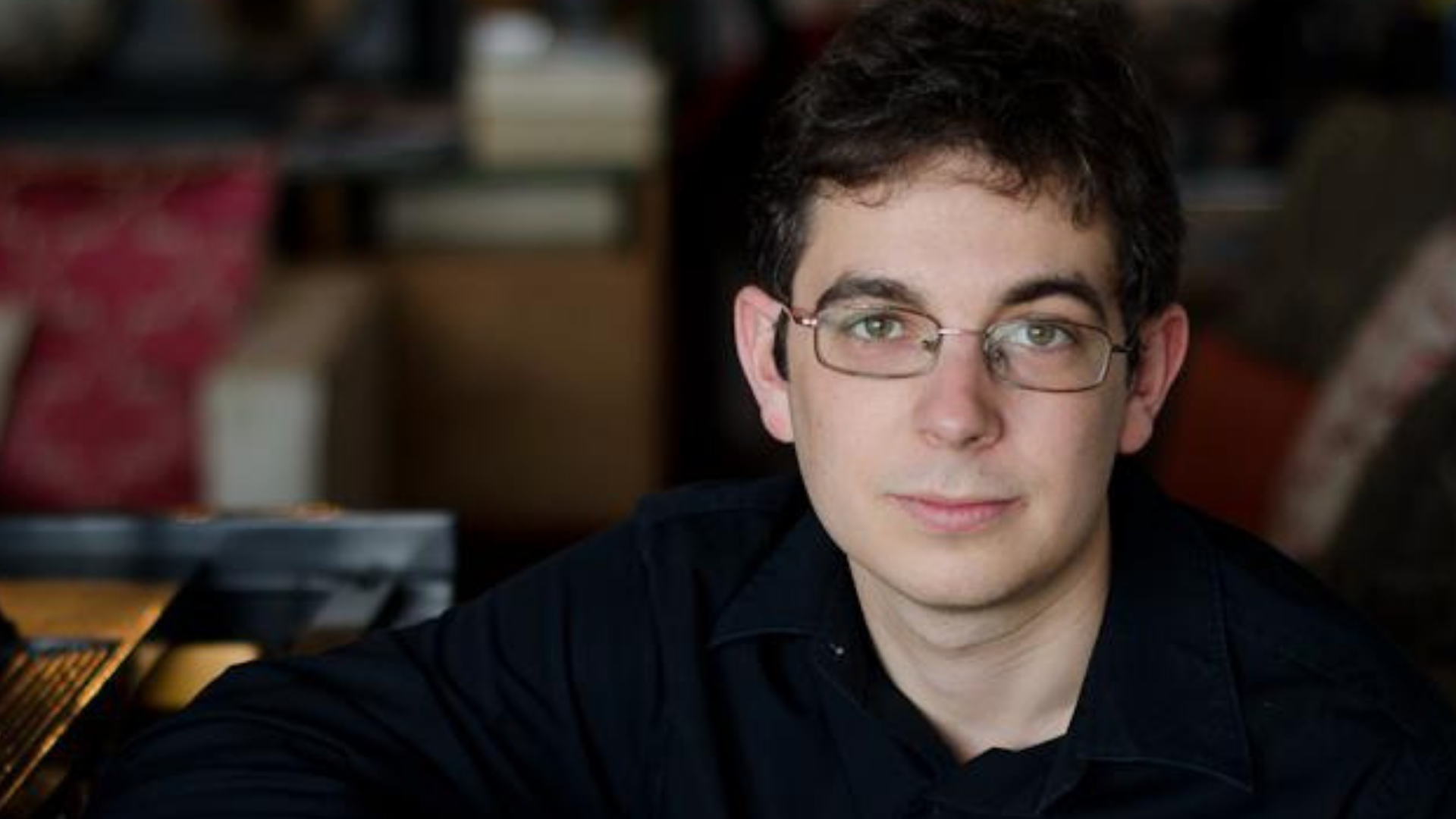Empowered By Setbacks, Pianist Michael Brofman Thrives as Accompanist
Pianist Michael Brofman.
Pianist Michael Brofman has earned a reputation as one of the finest vocal accompanists of his generation. As founder of Brooklyn Art Song Society, Michael is gearing up for opening night on October 5. But first, hear how he recovered from a performance-related injury with the expert help of Robert Durso.
Life
How has your experience in life shaped your artistry?
For several years in my early 20s I suffered a severe performance-related injury and lost the use of my right hand. Now I’m fully recovered thanks to my studies of the Taubman Approach with Robert Durso, but that experience deeply affected who I am as an artist. By losing the ability to play, it made me see how essential performing was for me, and I judge the success of my performances if I’m able to capture that sense of fierce urgency and necessity that keeps me going.
What is your most cherished accomplishment?
Founding Brooklyn Art Song Society. While it’s great to perform, there’s something fleeting about it to me, and it’s so rewarding to be building something that can potentially outlive me and be here when I am not.
What do you do off the stage that provides inspiration on stage?
Reading. I would call myself a compulsive reader of poetry, philosophy, literature, pretty much anything that comes my way. Everything I read feeds into my musical thinking. Poetry has an internal rhythm, philosophy treats ideas the way a great composer treats a motif, and an epic novel has a large structure like any well-written symphony. Two authors who have really changed my perspective on art are Walter Benjamin and Roland Barthes. Benjamin was really insightful on the value of live performance, especially as recorded sound and movies were starting to become commonplace in the 1920s and 1930s. Barthes had an amazing way of looking at the meaning underneath the surface in literature and pop culture, and it made me think very differently about how I interpret a score, especially when there’s a text involved.
What was your most positive surprise in life?
My daughter’s smile. I didn’t know someone could be as loving as she is, even at just 5 months.
Music
What projects (concerts, albums, tours, collaborations) are you working on right now?
Brooklyn Art Song Society’s opening night is coming up on Friday, October 5, and it features the songs of Charles Ives, who is a personal favorite of mine. I'll be performing with soprano Elisabeth Marshall and baritone Michael Kelly. It’s the first of five concerts in BASS'S American Iconoclasts series. So I’ll also be performing works by Samuel Barber, Leonard Bernstein, Ned Rorem, and Aaron Copland as part of that series. I'm also heading up to Ithaca College to be a guest teacher and perform works by Libby Larsen in October. A little farther out I have two new music projects I’m really excited about: first, recording a new work by composer Kurt Rohde, It Wasn’t a Dream, that BASS commissioned. BASS premiered this epic song cycle last June at National Sawdust, and now we are recording it for Albany Records in May. Also, in June I'm giving the world premiere of a new song cycle by composer James Matheson with baritone Edward Parks.
What was the inspiration behind your latest project? Why did you pursue it? Why should people care?
American Iconoclasts is BASS’s five-concert series presents the songs of five beloved composers: Charles Ives, Samuel Barber, Aaron Copland, Ned Rorem, and George Gershwin. I’ve always been really fascinated with the idea of “American” music, because it’s really not a straightforward concept. Some of the composers most associated with an American sound (Aaron Copland is the most famous example) trained abroad, especially in Paris. Or take a composer like Kurt Weill: he was born in Berlin, but no one would question that Street Scene is an authentic American musical. What makes music American? It’s more the ideas behind the music than the country of origin of the composer. Especially in today’s political climate, it seems to be an essential thing to be grappling with the idea of what makes something “American”?
Business of Music
What needs to be done to improve growing classical music audiences for live concerts? Or is it fine the way it is at the moment? Explain your point of view.
My approach to audience-building audience is modeled after a political campaign. You have your base: classical music lovers. They are passionate about classical music, but there simply aren’t enough of them to stay viable relying on them alone, so you need to reach out to swing voters (or in this case “swing audience members”). First thing is ticket prices have to be based on reality, that is, what are people realistically going to pay when they could just stay at home and watch Netflix instead, and what price will both be sustainable (since you have to pay the bills) but get people in the door. Prices for classical music now are based on the idea that the “value” of the ticket price is just a marker for how valuable the experience should be to society, not a hard-nosed decision on how to get as many people in the door as you can. Second — and this may sound facile, but it’s not — you need to invite people to concerts. Not just the people you think will go, but everyone. Politicians lose elections when they don’t fight for every vote; classical music loses when we don’t fight for every audience member.
What is your #1 piece of advice to artists who are starting their careers as professional musicians?
Your role is not to join the system; your role is to change the system.
For more information visit the Brooklyn Art Song Society or Mike Brofman’s website.

